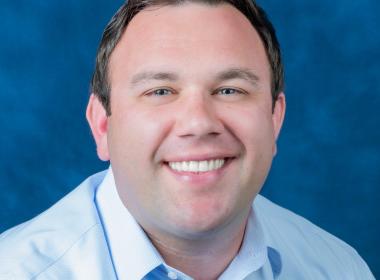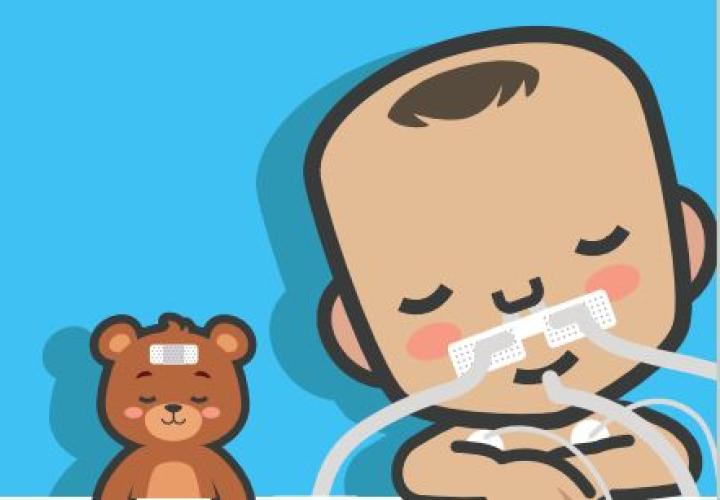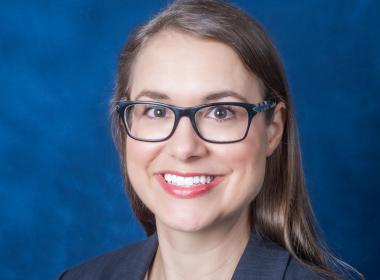Connecticut Children’s Esophageal Atresia Program provides expert care for babies and children with esophageal atresia (EA), tracheoesophageal fistula (TEF) and related conditions. Our multidisciplinary team offers comprehensive, long-term care to help children with EA thrive from infancy through young adulthood.
We are dedicated to providing the best surgical care and helping children with EA learn to eat and grow. Our specialists have extensive experience diagnosing and treating EA, TEF and related conditions such as esophageal dysmotility, narrow esophagus and gastroesophageal reflux.
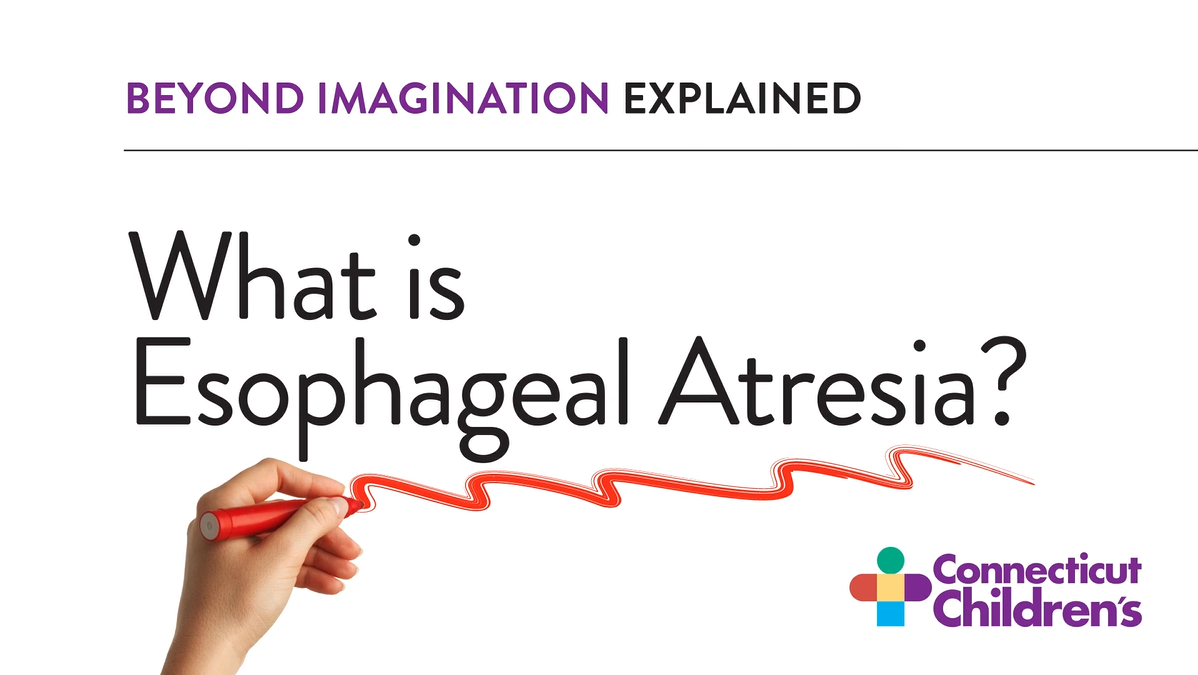
What is esophageal atresia?
Esophageal atresia (EA) is a rare birth defect where the esophagus does not fully develop, preventing food and liquids from reaching the stomach. Many babies with EA also have tracheoesophageal fistula (TEF), where the esophagus and trachea (windpipe) are abnormally connected, affecting breathing and swallowing.
Signs of esophageal atresia in newborns
- Spitting up or drooling
- Frothy white bubbles in the mouth
- Difficulty swallowing or feeding
- Having trouble breathing
- Coughing, choking or turning blue while feeding
- Inability to pass a feeding tube into the stomach
Comprehensive care at Connecticut Children’s
We take a team-based approach to diagnosing and treating esophageal atresia and TEF. Our program offers:
- Expert pediatric surgeons for surgical repair
- Gastroenterology (GI) specialists for digestive health
- Pulmonologists for airway and breathing support
- Otolaryngologists, nutritionists and speech-language therapists for breathing & feeding issues
- Long-term surveillance to monitor for complications
- Social workers and genetics
State-of-the-art treatment options
- Primary surgical repair for EA and TEF
- Foker process for long-gap EA
- Minimally invasive techniques to reduce recovery time
- Esophageal dilation for a narrow esophagus
We provide lifelong monitoring through our Esophageal Surveillance Program to manage feeding difficulties, reflux and esophageal strictures.
Why Choose Connecticut Children's Team?
Leaders in Research
Our clinicians are researchers, too. Our innovative team is always looking at ways to improve treatment for kids with EA, including new surgical options. We are leading a multi-phase, multi-institutional study aimed to better understand current practice and disease in esophageal atresia surveillance while ultimately developing evidence-based practice guidelines to steer future practice. We are proud members of the Eastern Pediatric Surgery Network (EPSN), a group of pediatric surgeons dedicated to establishing best practices and improving outcomes for children who need surgery. Two current studies we are leading for EPSN include:
- Long gap EA study: Current options for surgical repair include delayed primary repair, the Foker procedure and other traction techniques, and esophageal replacement. This EPSN study is a retrospective and prospective data registry aimed at describing patient characteristics, management strategies and outcomes after surgical repair of long-gap esophageal atresia.
- Esophageal atresia surveillance: Esophageal atresia is a congenital anomaly that affects one in 3,500 live births and is often associated with an increased cancer risk. Therefore, early screening interventions are necessary to identify, treat and prevent disease.
Convenient, Coordinated Care Close to Home
Whether you live in Connecticut or greater New England, our coordinated clinic visits and combined surgeries make it easy for families to receive care from many specialists in one visit. For added convenience, our team also provides outpatient care at our satellite clinics or via telehealth.
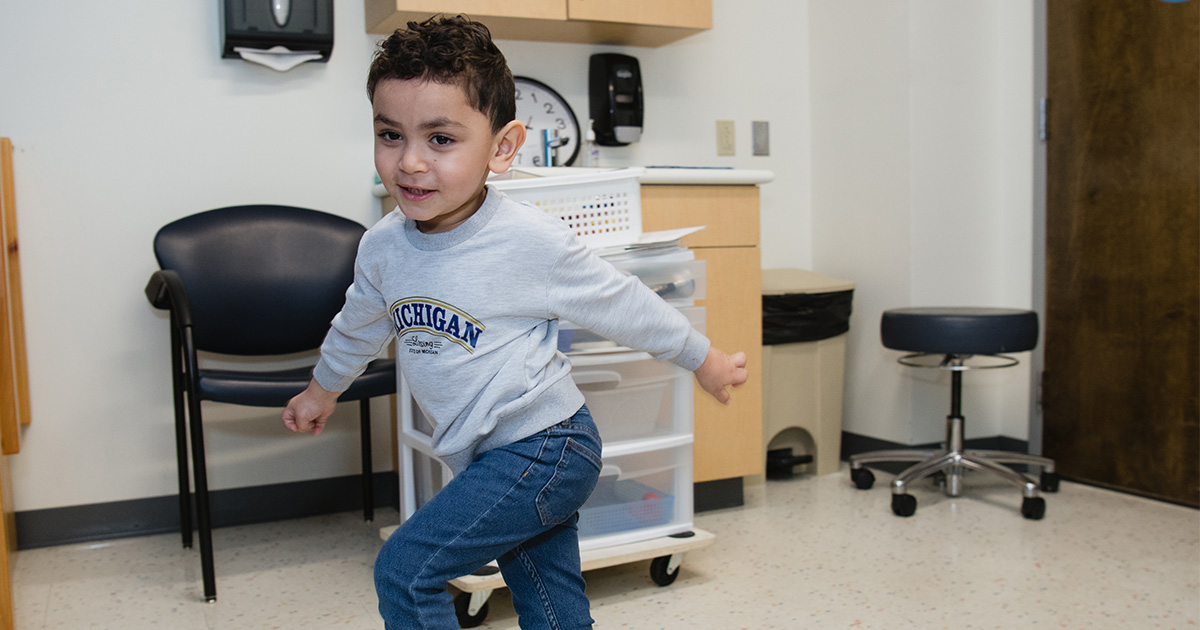
Beyond Esophageal Atresia: Marcus’ Story
Discover Marcus’s incredible journey through esophageal atresia and the compassionate, multidisciplinary care that helped him thrive. Just minutes after his birth, Marcus was whisked away for urgent intensive care when doctors detected esophageal atresia. Thanks to the expertise of Dr. J. Leslie Knod and the Connecticut Children’s Esophageal Atresia Collaborative—supported by pioneering research into bioengineered treatments—Marcus, now a spirited three‑year‑old, is talking, laughing, and living life to the fullest. Get a glimpse of how families like yours are supported every step of the way.
Read his inspiring storySchedule an Appointment
Call 860.545.9520 to schedule an appointment and learn more about our Esophageal Atresia Program.
Frequently Asked Questions
EA occurs due to abnormal esophageal development during pregnancy. The cause is unknown, but genetic and environmental factors may play a role.
EA is rare, occurring in about 1 in 3,500 newborns. It is often associated with VACTERL syndrome, affecting multiple body systems.
It may be detected before birth on ultrasound. After birth, X-rays, fluoroscopy or bronchoscopy confirm the diagnosis.
TEF is an abnormal connection between the esophagus and trachea, causing food and liquids to enter the airway. Surgery is required to correct this.
Yes, children with EA may need feeding therapy, reflux management and ongoing esophageal monitoring to prevent complications.
Yes! With proper medical care, children with EA can thrive and lead full, active lives.
Connecticut Children’s Esophageal Atresia Program is a regional leader in EA and TEF treatment, offering advanced surgical care and lifelong support.
Resources for Patients and Families
If you’re the parent of a child with EA, you may have many questions and concerns. Your care team at Connecticut Children’s will be with you every step of the way to provide guidance and support. Please reach out to a member of your team whenever you have questions or concerns. We understand that some parents may also want to learn more about EA on their own or connect with other families living with the condition. Here is a list of programs that you might find helpful.
- Centers for Disease Control and Prevention (CDC)
- National Organization for Rare Diseases (NORD)
- Esophageal Atresia Global Support Groups (EAT)
- International Network of Esophageal Atresia (INoEA)
- APSA Patient/Parent Resources
- CT 504 Form (Guidance & Instructions)
- CT 504 Form (Medical Statement)
- Nasphgan: A Guardian's Guide to EA
- Connecticut Children's EA TEF School Handout
Our Program Team
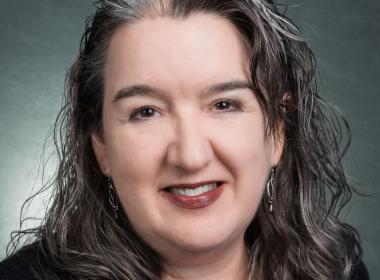
Nicole Murray, MD
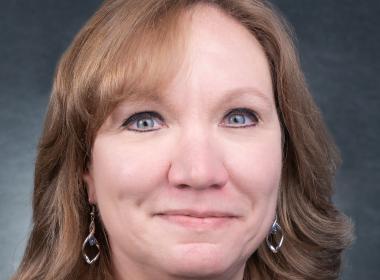
Christine Finck, MD, FACS
- Specialty
- Pediatric Surgery
